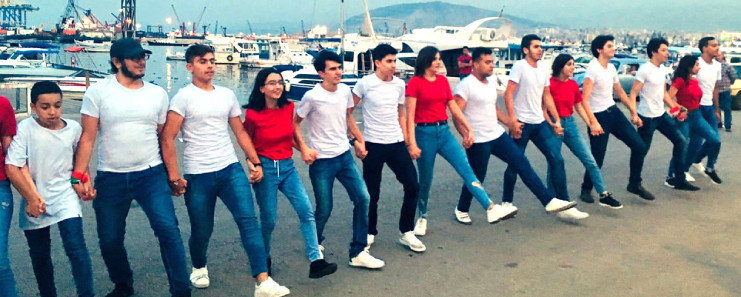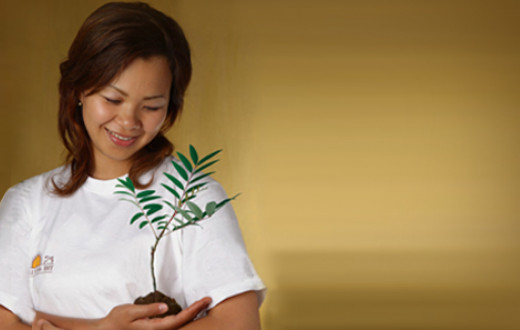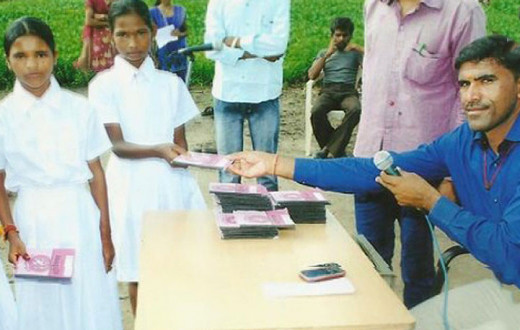A week after the Lebanese protests began on October 17th, 2019, the streets of the country’s second-largest city, Tripoli, saw a young enthusiastic group did something unusual, unique and totally unexpected situation like this. They sought peace through art. The group marched across the streets and started a flash mob. Performing the traditional folk dance of Dabkhe, they soon caught the attention of passers-by, protestors, and even the media. One passer-by noted, “This youthful spirit gives us hope that the community in Tripoli is still doing well.”
With slogans such as ‘Bullying is a weakness, not strength’; ‘Act, don’t react’, the group of Lebanese and Syrian boys and girls was sloganeering against bullying - an issue widely prevalent in the Lebanese society. As per a Save The Children report published in 2018, one in two children in Lebanon is bullied.
“Bullying is omnipresent in the lives of these youth: in their homes, schools, on the streets, in media and all around them,” says Katrien Hertog, Director of the Healing, Resilience and Preventing Extremism Project which inspired the group’s dance performance. The relevant message of the group gained support as they performed across the city. An onlooker in support of their movement said, “People should love one another and stand united without any discrimination or racism.”
Meet the Peace Ambassadors of Lebanon
The 100-member group was formed in a special International Association for Human Values (IAHV, a sister concern of The Art of Living) training which empowers youth to bring peace in their schools and communities. They came to be known as the Peace Ambassadors. The group’s street performance coincided with the Lebanese protests, wherein the roads were blocked and schools were closed. The country had come to a halt. Yet, sticking to their original plan, the IAHV Peace Ambassadors decided to come together and perform.

Their performance was a part of a series of peace art performances designed to bring change in behaviors and perceptions of society and reduce violence.
To the group, the dance they performed on the streets of Tripoli was a message of non-violence. As Boussanya, a Peace Ambassador said, “When people hear the word Tripoli or Lebanon, oh my God, they think, terrorism. I want them to have a positive idea about Tripoli. Tripoli is really not that ugly and that bad of a place as people think. There is goodness in people.”
In the past, a group of Peace Ambassador girls made National news with the theatre play they wrote and performed on the negative consequences of early girls’ marriage. Many who saw the play said their point of view and attitude towards early marriage has changed.
Currently, the group is touching other relevant issues such as violence affecting girls and women in Tripoli, negatives of drug use among youth, and cyber blackmailing. The group is using the time-tested means of theatre, music, art, and discussions to bring the change.
Rising from the ashes

Peace Ambassadors speak
“I was alive before just because I had to live, but now I live because I have a goal: I want to leave my print on society and spread peace.”
- Rama
“I always wondered why we are here on earth. I always thought it’s not just to eat and sleep. After undergoing these trainings I got to know my mission was to make the world more beautiful. Also, I am going through a very difficult time in my life but I was able to cope with it.” Hiba “I have more confidence in myself and I want to achieve more. Until I become myself the peace that will help others.”
- Kheiro
The above words are not just words of youth with an idealistic vision of bringing peace in their community through art performances. These are young people who have been victims of war and trauma and come from violence-affected and vulnerable backgrounds. Many of them have escaped the war in Syria and are struggling to make sense of their new surroundings. Many have seen domestic violence at home. The above testimonies are the end result of IAHV’s Youth Anti-Violence & Peace Ambassadors Training (YAVAP) which helps relieve participants of past traumas and infuses them with confidence and energy.
The powerful training is a part of a three-year project that aims to heal and empower war-affected children and youth in Lebanon and Jordan. Started in December 2016, the project has reached out to 18,000 children, 3,300 caregivers, teachers, and frontline workers, and create 150 youth Peace Ambassadors.

In Jordan, the project has created 68 youth Peace Ambassadors who began peacebuilding projects in their schools, communities, and camps. One group of boys created social cohesion between Jordanian and Syrian youth through football matches with mixed teams. One group of girls launched an anti-bullying campaign in school. Another group organized music and art classes that helped Syrian children to occupy their time constructively. In the Zaatari refugee camp in Jordan, Peace Ambassadors helped 5,928 children overcome anxiety, PTS, and sleeping disorders through stress-relief trainings.
In a society where adults have lost hope, these young Peace Ambassadors are bringing grassroots change and stirring hope for the future.
Written by Vanditaa Kothari
We'd love to hear from you. Leave your comments @artofliving
Interact with the author: @vanditaa1









